When it comes to duck hunting, choosing the right canine companion is essential. The best dog breeds for duck hunting not only accompany you on your adventures but also enhance your overall hunting experience.
These dogs possess specific traits that make them exceptional partners in the field, from strong retrieving instincts to the ability to handle various water conditions.
Imagine standing by the water’s edge, waiting for the perfect moment to take your shot, knowing that your trusty hunting dog is poised and ready to spring into action.
Whether you’re a seasoned hunter or new to the sport, selecting a breed known for its hunting capabilities will significantly increase your chances of success.
In this article, we will explore the key characteristics that define an ideal duck hunting dog, along with a detailed look at the top breeds renowned for their skills.
Understanding these traits will help you make an informed choice about the best companion for your duck hunting expeditions.
Top Dog Breeds for Duck Hunting
When it comes to the best dog breeds for duck hunting, several breeds consistently rise to the top due to their proven skills, temperament, and adaptability.
Let’s explore some of these top contenders, highlighting their unique attributes that make them exceptional hunting partners.
1. Labrador Retriever
The Labrador Retriever is often considered the gold standard among hunting dogs. Renowned for their intelligence and versatility, Labs excel in various hunting environments.
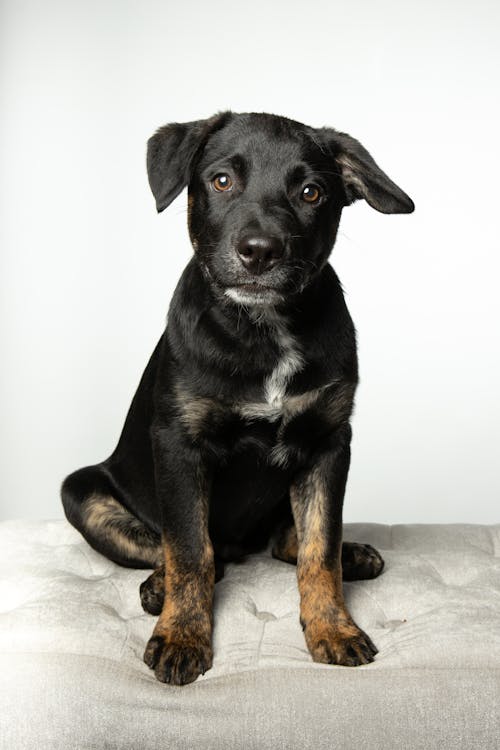
Their friendly demeanor makes them great family pets as well. With a water-resistant coat and a strong retrieving instinct, they navigate through marshes and lakes with ease.
Labrador Retrievers are also highly trainable, responding well to commands and eager to please their owners.
This combination of attributes solidifies their status as one of the best dog breeds for duck hunting.
2. Golden Retriever
Golden Retrievers are another top choice for duck hunters. Their gentle nature and eagerness to retrieve make them ideal companions in the field.
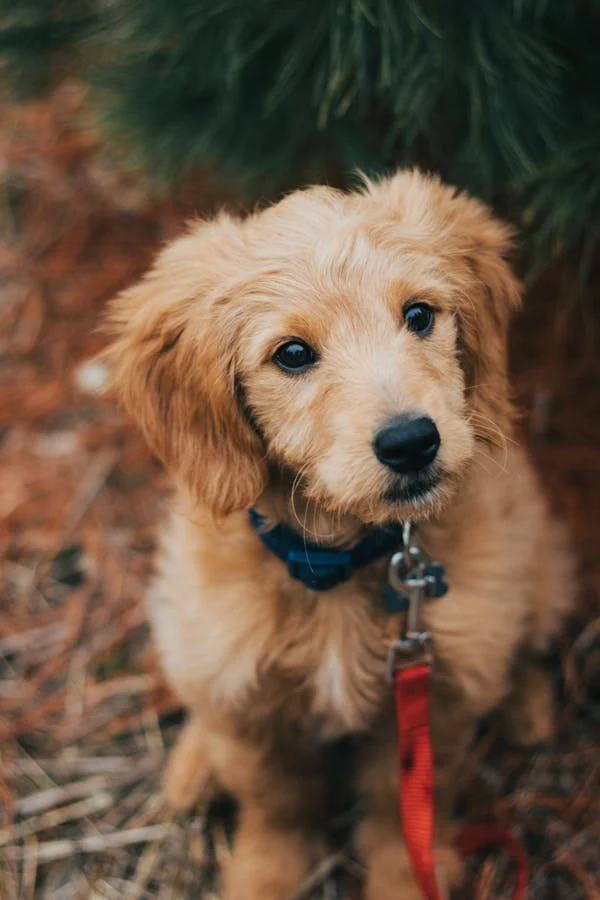
Known for their striking golden coats and friendly disposition, they are excellent at working with hunters of all skill levels.
Like Labs, Golden Retrievers possess a water-resistant coat and thrive in water-based environments.
Their loyalty and intelligence make them highly trainable, ensuring they can handle complex tasks in the field.
These dogs are not just hunting partners but also loyal family companions, making them one of the best dog breeds for duck hunting.
3. Chesapeake Bay Retriever
The Chesapeake Bay Retriever, or “Chessie,” is a breed specifically developed for waterfowl hunting.
These dogs are known for their remarkable endurance and adaptability in harsh weather conditions, making them particularly effective in the marshlands and coastal areas.
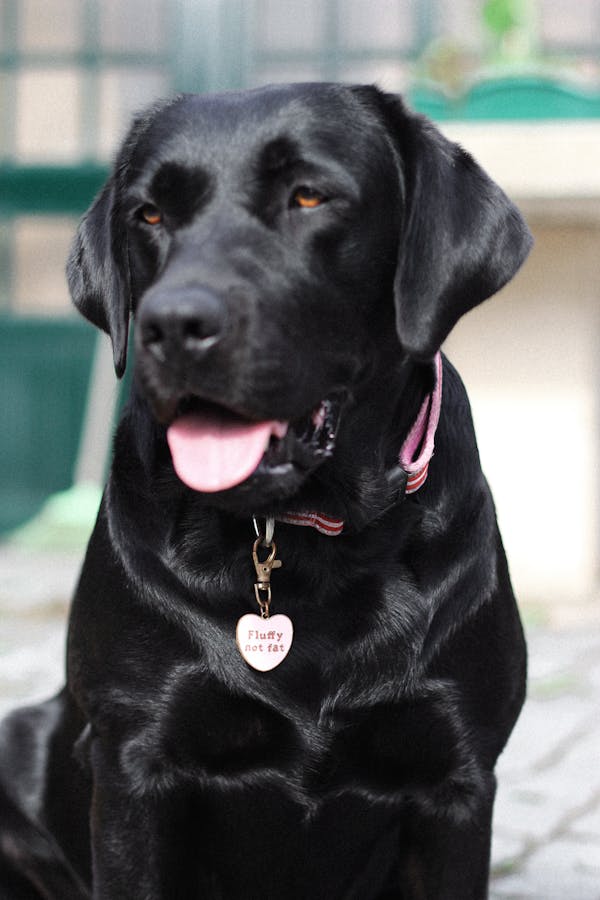
Chessies have a dense, waterproof coat that allows them to thrive in cold waters while retrieving ducks. Their strong work ethic and loyalty to their owners make them a favorite among serious duck hunters.
With their natural retrieving instincts and ability to handle difficult environments, Chesapeake Bay Retrievers are undeniably among the best dog breeds for duck hunting.
4. American Water Spaniel
The American Water Spaniel is a versatile and adaptable breed, often overlooked but highly effective in duck hunting.
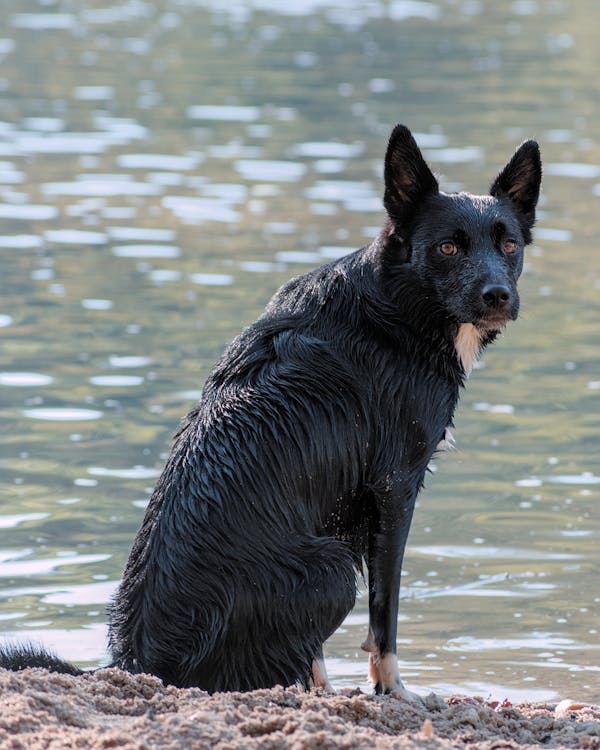
These dogs are compact and agile, making them well-suited for navigating dense cover and marshy terrain. With their strong retrieving instincts and love for water, they can easily fetch ducks from both land and water.
Their friendly and affectionate nature also makes them great family pets. The American Water Spaniel’s unique combination of skills and traits positions it as one of the lesser-known yet excellent choices among the best dog breeds for duck hunting.
5. Nova Scotia Duck Tolling Retriever
The Nova Scotia Duck Tolling Retriever stands out with its unique tolling behavior, where it lures ducks within shooting range by playfully splashing in the water.
These dogs are energetic, intelligent, and incredibly trainable, making them ideal for duck hunters looking for an active partner.
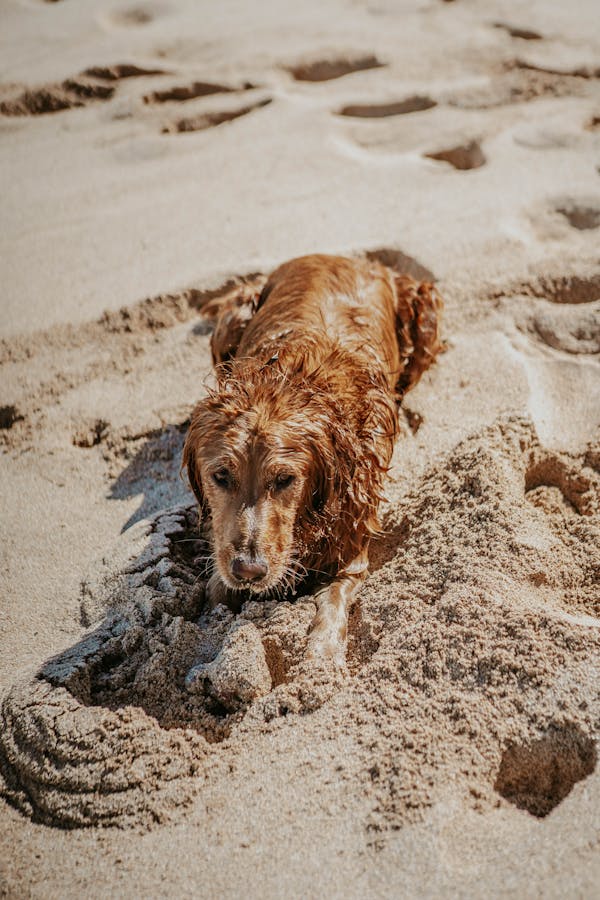
They are versatile swimmers with strong retrieving instincts, capable of working effectively in a variety of conditions.
Their enthusiasm and agility make them a joy to work with in the field. The Nova Scotia Duck Tolling Retriever is certainly among the best dog breeds for duck hunting, thanks to its specialized skills and vibrant personality.
6. Pointer or Setter Breeds
While traditionally known for upland game hunting, Pointer and Setter breeds like the English Pointer and Gordon Setter can also excel in duck hunting.
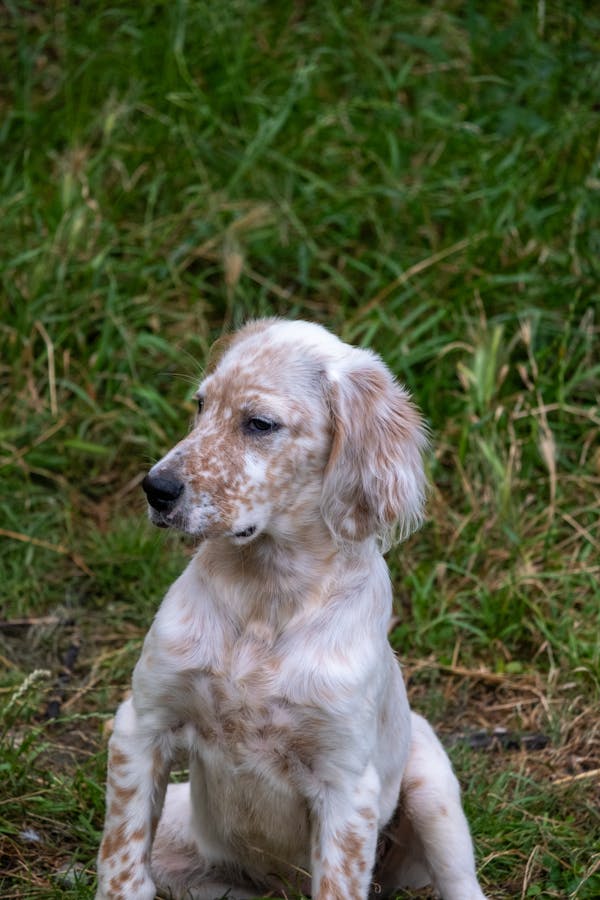
Their exceptional sense of smell and ability to locate game make them valuable assets in the field.
They may not have the same strong swimming abilities as some water breeds, but their tracking and locating skills can complement water retrievers effectively.
By teaming up with a retriever, Pointer or Setter breeds can help hunters find downed ducks quickly, showcasing their versatility as hunting companions. This adaptability places them among the best dog breeds for duck hunting.
Related Post: House training your dog
Considerations When Choosing a Duck Hunting Dog
Selecting from the best dog breeds for duck hunting involves more than just picking a popular breed.
It’s essential to consider several factors that will influence the dog’s performance in the field, as well as its compatibility with your hunting style and lifestyle.
Here are some important considerations to keep in mind.
1. Environment and Terrain
The hunting environment plays a significant role in determining which breed will perform best. Different terrains, such as marshes, lakes, and rivers, require varying levels of adaptability and skill.
For instance, if you primarily hunt in deep waters or icy conditions, a breed like the Chesapeake Bay Retriever, known for its endurance and water resistance, would be ideal.
Conversely, if you frequently find yourself in areas with dense vegetation, a compact and agile dog like the American Water Spaniel may excel.
Understanding the environment in which you’ll be hunting helps narrow down the best dog breeds for duck hunting that can thrive in those conditions.
2. Owner’s Experience Level
Your experience level as a hunter also influences the choice of a hunting dog. First-time hunters may benefit from breeds that are known for their trainability and gentle nature, such as the Labrador Retriever or Golden Retriever.
These breeds are generally forgiving and easy to train, which can help build confidence for novice hunters.
On the other hand, experienced hunters may look for breeds that require more challenging training and can handle complex tasks in the field, such as the Chesapeake Bay Retriever or Nova Scotia Duck Tolling Retriever.
Matching the dog’s needs and training requirements with your experience will lead to a more harmonious partnership.
3. Dog’s Age and Health
When choosing from the best dog breeds for duck hunting, consider the age and health of the dog. Puppies require more time and patience for training but can grow into excellent hunting partners with the right guidance.
An adult dog may already have some training, making it easier for you to integrate it into your hunting routine.
However, it’s crucial to assess the dog’s health status, regardless of age. Ensure that the dog has been properly screened for any genetic conditions that may affect its ability to perform in the field.
A healthy dog will not only be more effective but will also enhance your overall hunting experience.
4. Compatibility with Family and Lifestyle
Finally, consider how well the breed fits into your family and lifestyle. Some breeds, like the Labrador and Golden Retrievers, are known for their friendly and sociable natures, making them great family pets outside of hunting.
On the other hand, more energetic breeds like the Nova Scotia Duck Tolling Retriever may require more exercise and mental stimulation to prevent boredom. Ensure that the dog you choose can adapt to your home environment and lifestyle, whether that means regular outdoor activities or simply being a part of family life when not hunting.
you may also like to read: The hardest working dog breeds
Training Your Duck Hunting Dog
Training is a critical aspect of ensuring that you have one of the best dog breeds for duck hunting.
A well-trained dog enhances your hunting experience by increasing efficiency in the field and fostering a strong bond between you and your canine companion.
Here are some essential training techniques to consider when preparing your hunting dog.
1. Basic Obedience Training
Start with basic obedience training to establish a strong foundation. Commands like “sit,” “stay,” “come,” and “heel” are vital for effective communication during hunts.
Consistency and positive reinforcement are key; use treats, praise, and play to reward your dog for following commands.
Basic obedience training not only ensures safety during hunts but also builds the dog’s confidence and responsiveness.
2. Water Training and Retrieving Exercises
Since most duck hunting occurs in watery environments, introducing your dog to water early in the training process is crucial.
Begin with shallow water and gradually increase depth as your dog becomes more comfortable. Use retrieving exercises to teach your dog how to fetch ducks effectively.
Start with a toy or dummy that mimics the size and weight of a duck. Throw it into the water and encourage your dog to retrieve it.
Gradually incorporate distractions, such as other dogs or noise, to simulate real hunting conditions.
3. Socialization and Exposure to Hunting Environments
Socialization is another essential component of training for the best dog breeds for duck hunting.
Expose your dog to various environments, sounds, and other animals to help it become more adaptable and confident in the field.
Take your dog on trips to hunting sites, allowing it to experience the sights, sounds, and smells of waterfowl hunting.
The more exposure your dog has to different hunting scenarios, the better prepared it will be when it’s time to hunt for real.
Advanced Skills and Techniques
Once your dog masters basic obedience and retrieving skills, you can move on to advanced training techniques.
This may include teaching your dog to mark where ducks land, handle multiple retrieves, and navigate challenging terrains.
Use specialized training tools, such as scent trainers and bumpers, to enhance your dog’s abilities.
Advanced training not only improves your dog’s performance in the field but also strengthens the bond you share as you work together toward common goals.
Conclusion
In the world of waterfowl hunting, selecting from the best dog breeds for duck hunting can significantly enhance your experience in the field.
As we’ve explored, certain breeds like the Labrador Retriever, Golden Retriever, and Chesapeake Bay Retriever stand out for their unique skills, strong retrieving instincts, and adaptability to various environments.
Each breed offers its own set of strengths, making it crucial to choose one that aligns with your hunting style, environment, and personal preferences.
Understanding key traits such as physical attributes, temperament, and the specific skills required for duck hunting can help you make an informed decision.
Additionally, considering factors like your experience level, the dog’s age and health, and how well the breed fits into your lifestyle will ensure a harmonious relationship between you and your canine companion.
Training is the final piece of the puzzle. Whether focusing on basic obedience, water training, or advanced skills, investing time and effort into training your dog will yield tremendous rewards in the field.
A well-trained hunting dog not only increases your success but also fosters a deeper bond between you and your four-legged friend.
By taking the time to research and understand the best dog breeds for duck hunting, you set the stage for many successful and enjoyable hunting seasons ahead.
Whether you’re a novice or an experienced hunter, the right dog can make all the difference in your waterfowl adventures.
FAQs
1. What are the best dog breeds for duck hunting?
The top breeds commonly recognized as the best dog breeds for duck hunting include the Labrador Retriever, Golden Retriever, Chesapeake Bay Retriever, American Water Spaniel, Nova Scotia Duck Tolling Retriever, and various Pointer or Setter breeds. Each breed offers unique skills that enhance their effectiveness in the field.
2. Why are Labrador Retrievers considered ideal for duck hunting?
Labrador Retrievers are renowned for their intelligence, strong retrieving instincts, and friendly demeanor.
Their water-resistant coats and ability to adapt to various environments make them exceptional companions for waterfowl hunting.
3. How can I train my dog for duck hunting?
Training your dog for duck hunting involves several key steps:
- Basic obedience training: Teach essential commands such as sit, stay, and come.
- Water training: Introduce your dog to water and practice retrieving dummies.
- Socialization: Expose your dog to different environments and situations to build confidence.
- Advanced skills: Focus on specific hunting tasks, such as marking and handling multiple retrieves.
4. What should I consider when choosing a hunting dog?
When selecting a hunting dog, consider:
- Environment and terrain: Different breeds excel in various settings (marshes, lakes, etc.).
- Owner’s experience level: Some breeds are easier to train, which may suit novice hunters better.
- Dog’s age and health: Ensure the dog is healthy and assess whether you prefer a puppy or an adult.
- Compatibility with family and lifestyle: Choose a breed that fits well within your home and activities.
5. Are there any specific training techniques for waterfowl retrieval?
Yes, effective training techniques for waterfowl retrieval include:
- Using dummies or bumpers: Practice retrieving with items that mimic ducks.
- Gradual exposure to water: Start in shallow water and progressively increase depth.
- Simulating hunting conditions: Incorporate distractions and noises to prepare your dog for real hunting scenarios.
6. Can smaller breeds be effective for duck hunting?
While smaller breeds like the American Water Spaniel can be effective, they may not have the same endurance or strength as larger breeds.
However, their agility and ability to navigate dense cover make them suitable for specific hunting environments.
7. How can I ensure my hunting dog stays healthy?
To maintain your hunting dog’s health:
- Provide a balanced diet appropriate for their age and activity level.
- Schedule regular vet check-ups and vaccinations.
- Ensure adequate exercise and mental stimulation to keep them fit and engaged.
- Be mindful of their joints, especially in active breeds, and adjust their training accordingly.
8. What is the best age to start training a duck hunting dog?
Starting training as early as possible is beneficial. Puppies can begin basic obedience training as soon as they are old enough, usually around 8 weeks.
Introduce them to water and retrieving exercises gradually as they grow, typically around 4 to 6 months of age.
9. How important is socialization for a duck hunting dog?
Socialization is extremely important for a duck hunting dog. Exposure to different environments, sounds, and situations helps build confidence and adaptability, which are crucial for performing well in the field.
10. Where can I find reputable breeders for hunting dogs?
To find reputable breeders for the best dog breeds for duck hunting, consider:
- Joining breed-specific clubs or associations.
- Attending dog shows or hunting events to meet breeders.
- Researching online for breeders with good reviews and a history of producing healthy, well-tempered hunting dogs.


Pingback: The Glamour of Mixed Dog Breeds with Poodles - Tech Promot
Pingback: Why Does a Dog Go Under the Bed? - Tech Promot